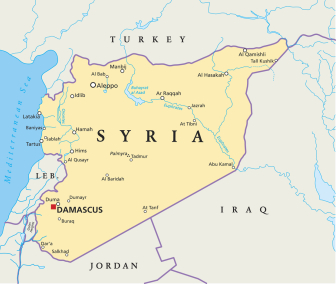The Archbishop of Canterbury has assured traditionalists that the Church of England remains committed to finding a way for them to stay within the fold despite the defeat of a compromise measure in General Synod on Saturday.
The Archbishops of Canterbury and York put forward an amendment to draft legislation on women bishops that would have given a nominated male bishop “co-ordinate” jurisdiction with a diocesan female bishop where a traditionalist parish could not in conscience accept her oversight.
If requested by a traditionalist parish, a female bishop would have had to refrain from undertaking certain episcopal duties, which would have instead been carried out by the nominated male bishop, whose authority would come from the Measure itself rather than from delegation.
The amendment was narrowly defeated after a lengthy debate in Synod on Saturday, prompting calls from traditionalists for a new compromise deal.
Synod member Sarah Finch was amongst Synod members warning that hundreds of traditionalist churches would walk unless sufficient provision was made for them.
Addressing Synod today, Dr Rowan Williams admitted that holding Synod together in the process towards women bishops had been “desperately difficult”.
“Obviously Archbishop Sentamu and I would have liked our amendment to pass, that’s what you do when you pose amendments. But we would want to encourage those disappointed by the outcome, and also the whole Synod as seeing that not as the end of the road,” Dr Williams said.
“We are, in the Church of England, in the middle of both a legislative process and a process of discernment, and, I would dare to add, a process of service to one another.
“The next phase of the work we try to do together, I think, has to be very, very closely focused on the service we seek to do one another, and that means of course, working in the interests of those who will be taking different decisions from our own.”
Synod, currently meeting in York, voted this morning in favour of retaining provisions for opponents of women bishops within the draft Measure.
The provisions maintain that the diocesan bishop should make a scheme containing arrangements for the exercise of certain episcopal duties by a male bishop, and that a letter of request for male oversight may be submitted by a parochial church council where it has the approval of a majority of council members.
If the draft Measure is approved by the end of Synod tomorrow, it will be sent out for consideration in diocesan synods before coming before Synod for consideration again in around 18 months.
The Church of England has ordained women priests since 1994. The first woman bishop is not expected to be consecrated before 2014.
News

Some reflections on Purim and the meaningfulness of Jewish-Christian dialogue
Hebrew scholar and Jewish academic Irene Lancaster reflects on Purim and Jewish-Christian dialogue.

Gluttony and the Holy Spirit’s fruit of self-control
This excessive indulgence goes against the Christian spirit of self-control and can lead to adverse spiritual and physical consequences.

Christian activist's arrest for anti-monarchy slogan was unlawful
A left-wing Christian activist who shouted “who elected him?” at a proclamation ceremony for King Charles III was arrested unlawfully.

Nazanin Zaghari-Ratcliffe talks about Iranian imprisonment ordeal and her faith
Nazanin Zaghari-Ratcliffe has spoken about her six years of imprisonment in Iran and her complex relationship with faith during and after her ordeal.



